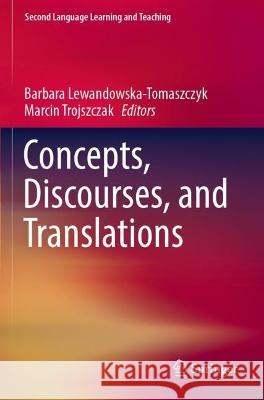Concepts, Discourses, and Translations » książka
topmenu
Concepts, Discourses, and Translations
ISBN-13: 9783030961015 / Angielski / Miękka / 2023
Concepts, Discourses, and Translations
ISBN-13: 9783030961015 / Angielski / Miękka / 2023
cena 603,81
(netto: 575,06 VAT: 5%)
Najniższa cena z 30 dni: 578,30
(netto: 575,06 VAT: 5%)
Najniższa cena z 30 dni: 578,30
Termin realizacji zamówienia:
ok. 16-18 dni roboczych.
ok. 16-18 dni roboczych.
Darmowa dostawa!
This present book discusses issues related to languages, cultures, and discourses by addressing a variety of topics ranging from culture and translation, cognitive and linguistic dimensions of discourse, and the role of language in political discourses and bilingualism. By focusing on multiple interconnected research subjects, the book allows us to see the intersections of language, culture, and discourse in their full diversity and to illuminate their less frequented nooks and crannies in a timely fashion.











